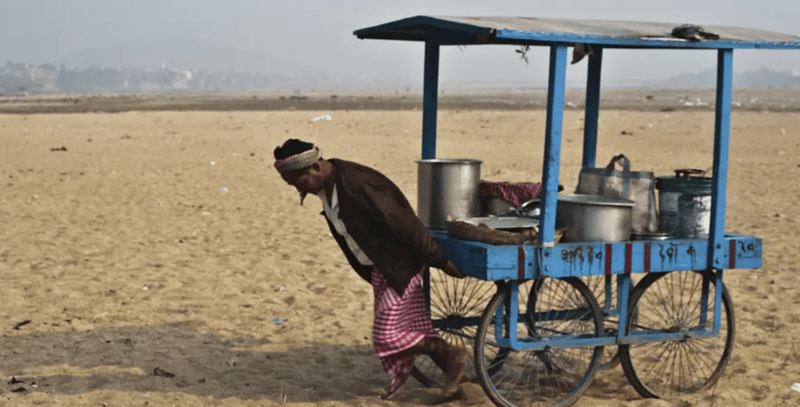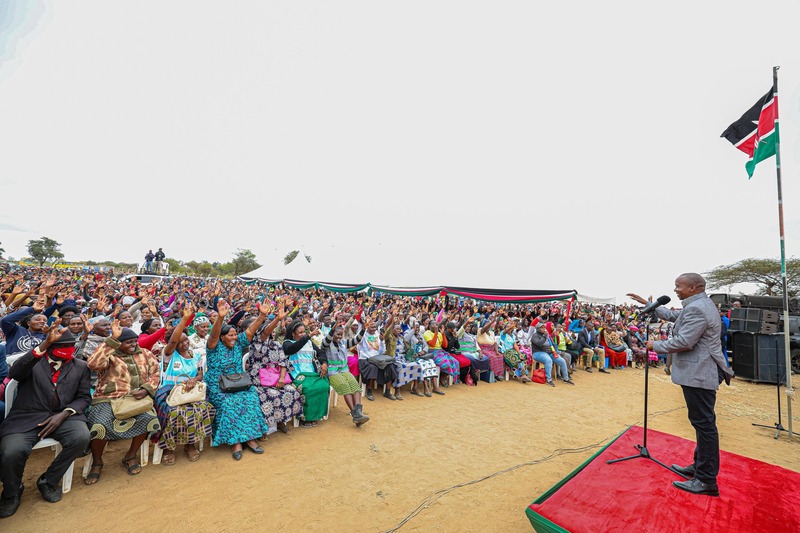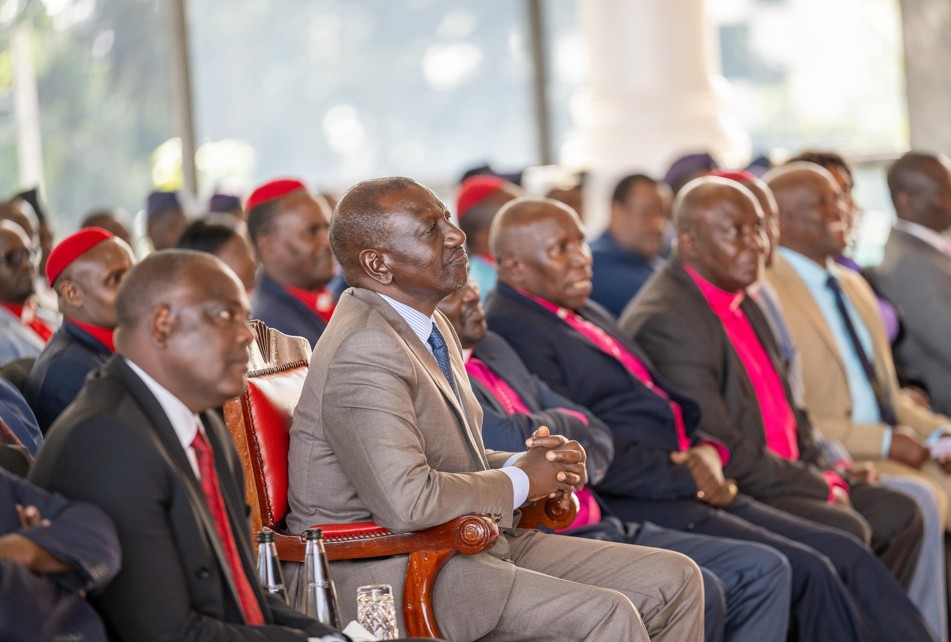Diani’s iconic 14th-century mosque takes beachgoers back to historical past
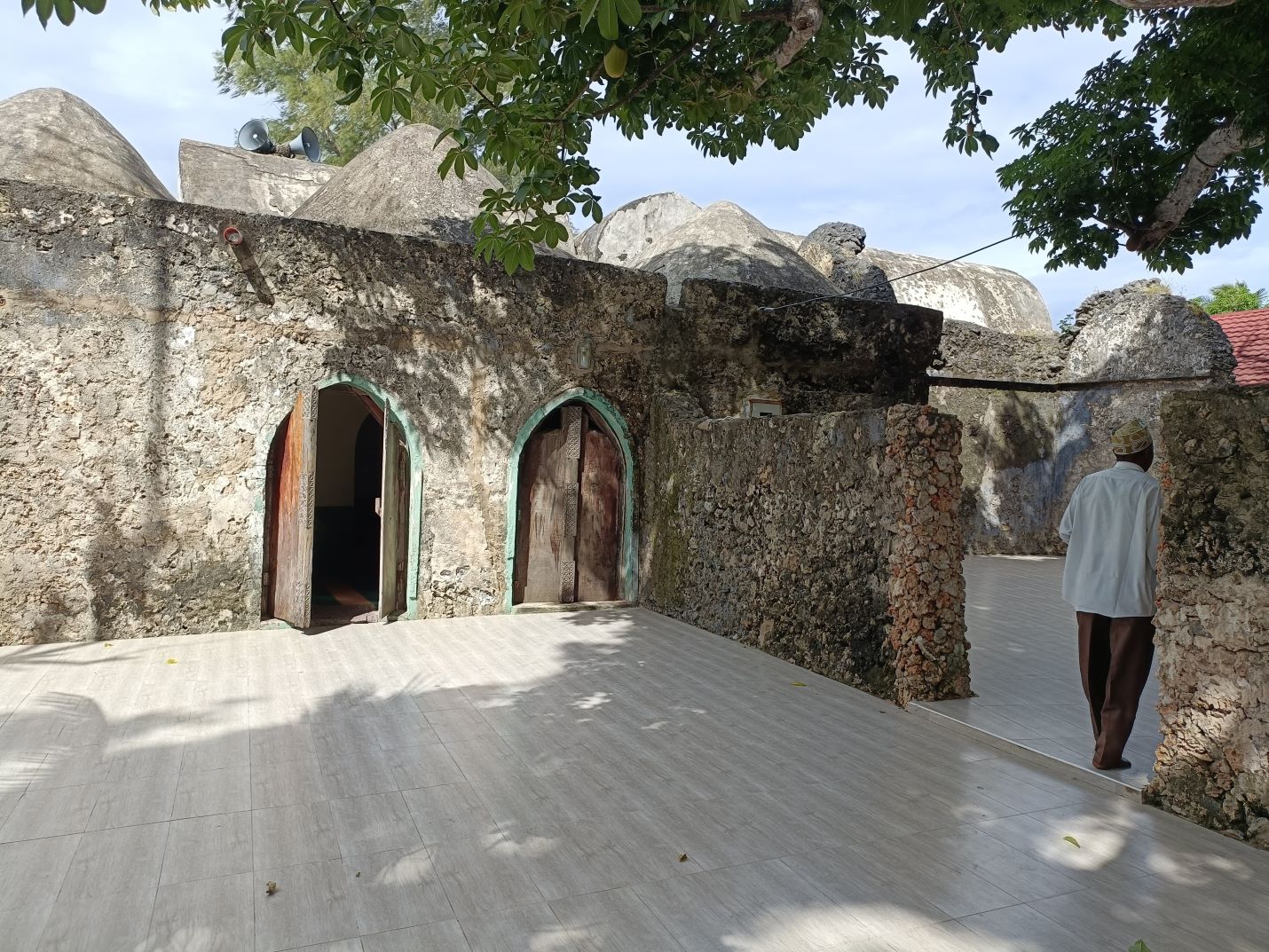
Its whitewashed walls blend with the surroundings while the wooden doors with Arabic calligraphy evoke a sense of its historical past.
It is 2 pm on a Saturday, and the gentle rays of the sun caress my skin as I make my way to the iconic Kongo Beach in Diani, Kwale County.
The beach is a favourite for both local and international tourists because it is in this area where the tourists get to see the magical sunset, have a close look at a mosque that is believed to have existed since the 14th century, and witness an estuary where river water flows into the Ocean.
More To Read
- Tensions flare as Kwale leaders demand removal of KWS from Diani-Chale Marine Reserve management
- Thousands join plastic pollution fight as Diani Beach festival kicks off in Kwale
- Saving Diani's marine life: Local youth rally for action against plastic pollution
- Kwale initiates Sh20 million project for tourism infrastructure upgrade
- World Ocean Day: Youth lead Diani beach cleanup in fight against plastic pollution
- Kwale tourism sector gets boost following upgrading of road leading to abandoned beaches
The seashore is filled with children and adults, some engaging in water sports while others are basking on the white sand looking up at the clear blue sky. The sight is breathtaking.
Near the ocean is a simple yet culturally significant building — the Kongo Mosque —a place where Arabs and merchants prayed as they toured East Africa.
As I approached the mosque, I met Sheikh Hamisi Suleiman, a deputy Imam of Kongo Mosque. He has been in charge of the mosque for more than 40 years now and knows its history only too well.
According to him, the mosque got its name from an inscription on a grave found at the site where it stands on which the words ‘Siddiq Kongo’ were written.
Hamisi said after the Arabs left, the mosque was abandoned and was found again about 300 years ago by one Mwinyi Kombo, a coast native who claimed to have had a revelation about it in his dream.
"In his dream, he was commanded to look for a mosque along the Diani coastline. At Kongo, he found the old structure which had become a home for bats. He found the remains of what we now know as Kongo Mosque," Hamisi said.
The discovery transformed the site from a forgotten relic into a revered place of worship with historical significance.
Over the years, some of the walls of the mosque have peeled off, making its custodians repair it to preserve it. The number of people has also increased, creating a need for expansion.
 The newly-built mosque which will accomodate more Muslim faithful who frequent Kongo for prayers. (Photo: Mishi Gongo)
The newly-built mosque which will accomodate more Muslim faithful who frequent Kongo for prayers. (Photo: Mishi Gongo)
"We have recently renovated the structure, using modern building materials like cement and paints. We have also added an extension on the eastern wing to accommodate an increasing number of worshippers,” he said.
Mosque capacity
The deputy Imam said the mosque can now accommodate about 500 faithful during prayers.
“The number can grow to about 5,000 during Eid prayers where faithful extend to the beach,” said Hamisi.
The restoration work, though modern, is carefully blended with the mosque's ancient architecture, preserving its timeless charm.
The whitewashed walls stand in harmony with the surrounding landscape, and the wooden doors, intricately carved with Arabic calligraphy, evoke a sense of the mosque's historical past.
Despite its age, Kongo mosque continues to serve thousands of people in Kwale County.
“Because of the increasing number of people every season, we are in the process of extending the mosque toward the beach. As the years go by, the congregation increases,” he said.
Despite the expansions using modern material, Hamisi said they are trying their best to maintain the ancient look.
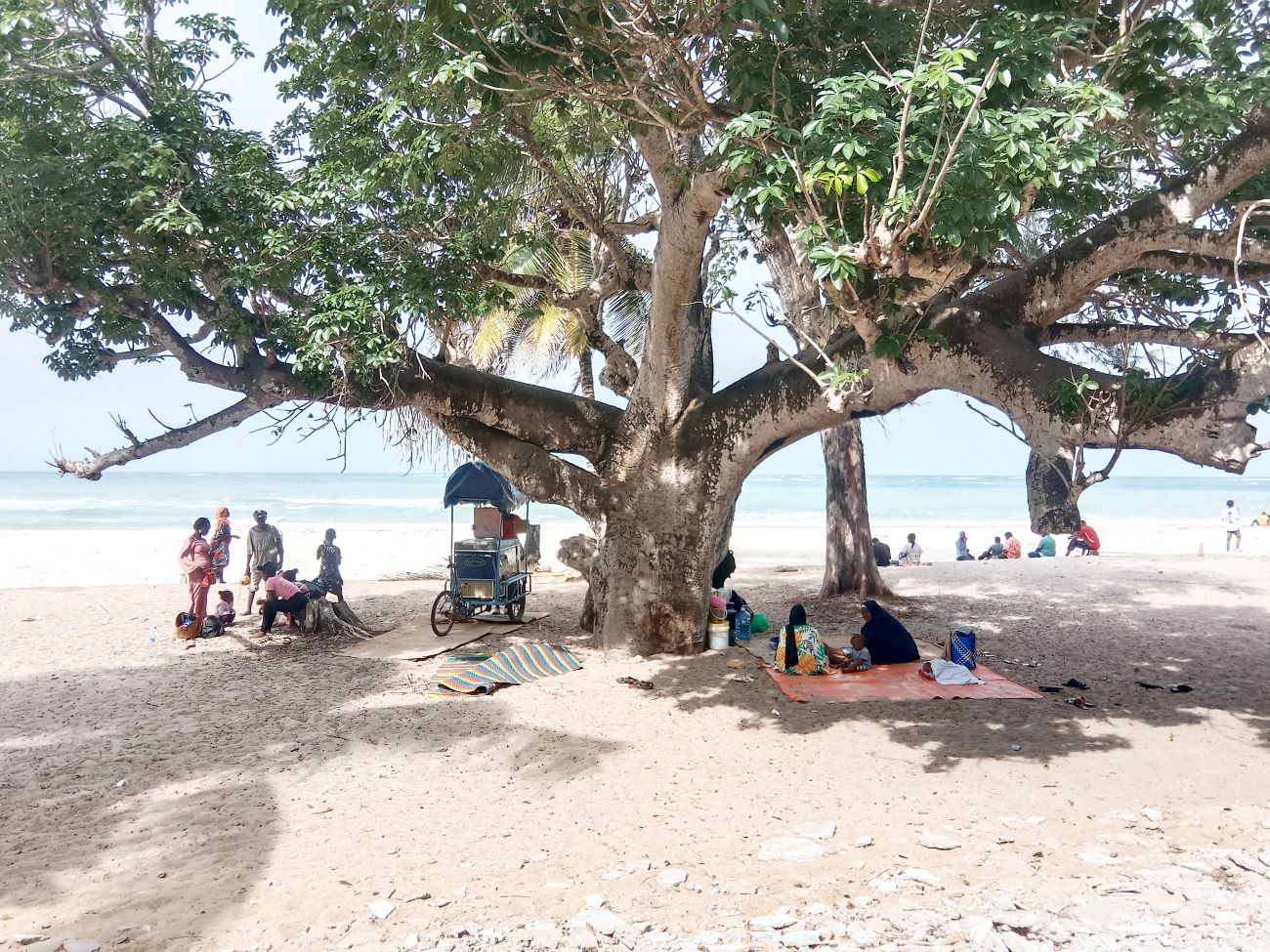 Revellers basking at the beach near the Kongo Mosque. (Photo: Mishi Gongo)
Revellers basking at the beach near the Kongo Mosque. (Photo: Mishi Gongo)
Being near a public beach, Hamisi and other mosque custodians always ensure that the Islamic religious traditions are observed. For instance, right at the entrance, they have placed a warning sign restricting loud music and nudity near the mosque which neighbours the beach.
“This beach continues to attract people of different cultures. We cannot restrict them, but we always ensure that they wear swimming attires away from the mosque to maintain the respect it deserves,” Hamisi said.
He also said that they do not allow the sale and consumption of alcohol around the beach near the mosque as is the case at most other beaches in the Coast region which are used as entertainment hubs where revellers flock to either party or spend time with their friends.
Walking further along the beach, the tranquil estuary where the river water flows into the ocean comes into view. The water is like a mirror, reflecting the sky's numerous colours as the sun begins its descent.
Diverse cultures
This natural occurrence is not just a meeting of waters, but a symbolic joining of the diverse cultures that have come together in this region over centuries.
The Eastleigh Voice met Salma Abdulrahman, a Mombasa resident who had come to enjoy her weekend with the family in Diani. Her children played in the shallow waters at the estuary as she scrolled through her phone.
“I like coming here with my family, especially on weekends. We not only get a quiet time but also get time to bond as a family. This is a decent beach because my children are not exposed to nudity and immorality that is usually seen at other public beaches,” Salma said.
Said Kizogo, a beach operator, said they enjoy high sales during holidays and weekends when the number of visitors increases at the beach.
“I sell madafu and most visitors love it. When there are many of them, all beach operators usually sell a lot,” said Said.
He said the mosque's proximity helps him say his prayers easily.
As evening approaches, only a few people remain at the beach. The air cools, and the first stars start to twinkle in the dusky sky.
The horizon is painted with hues of orange, pink, and purple, each colour more vivid than the last. It’s a moment of serene beauty, a reminder of why Kongo Beach, with its historical treasures and natural wonders, remains a beloved destination for so many.
As the call to prayer echoes over the sand and sea, I am struck by the timeless connection between the people, their faith, and the landscape that has defined their history for centuries.
Top Stories Today


